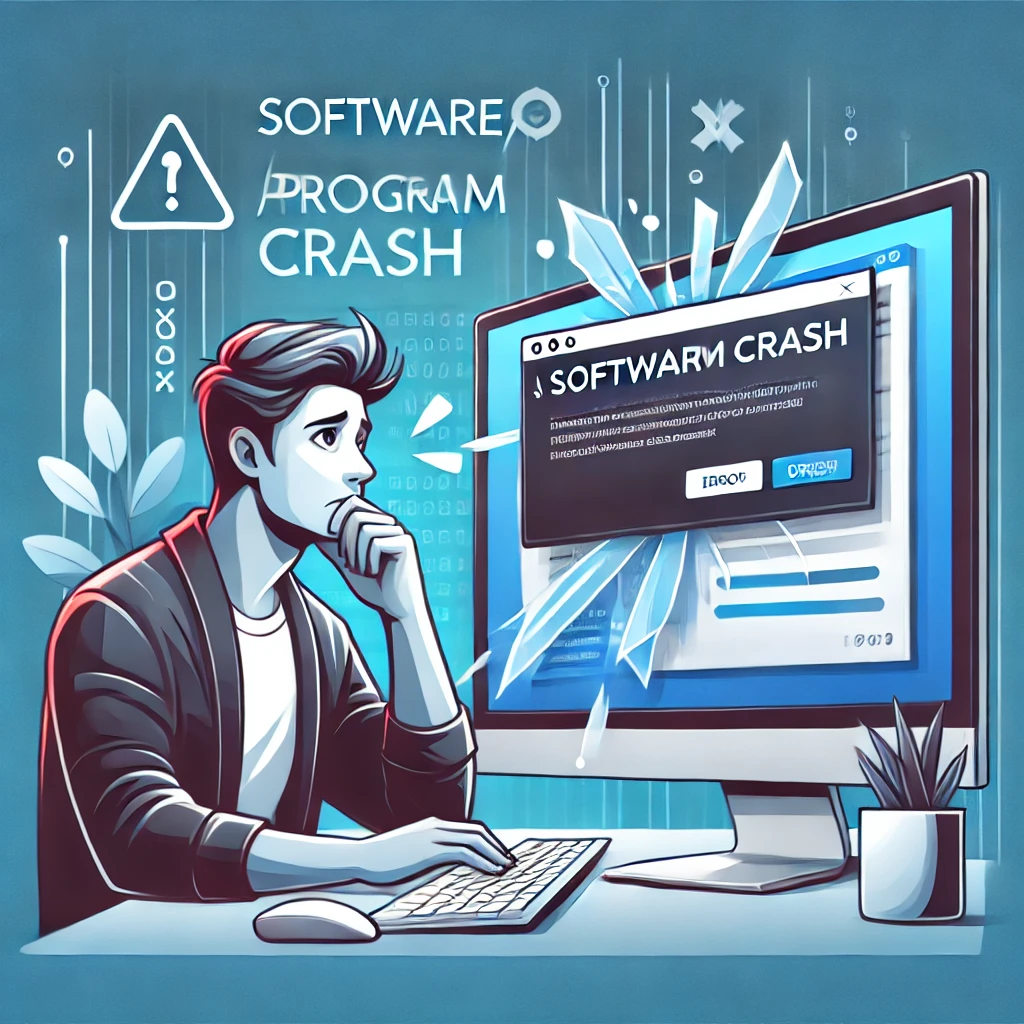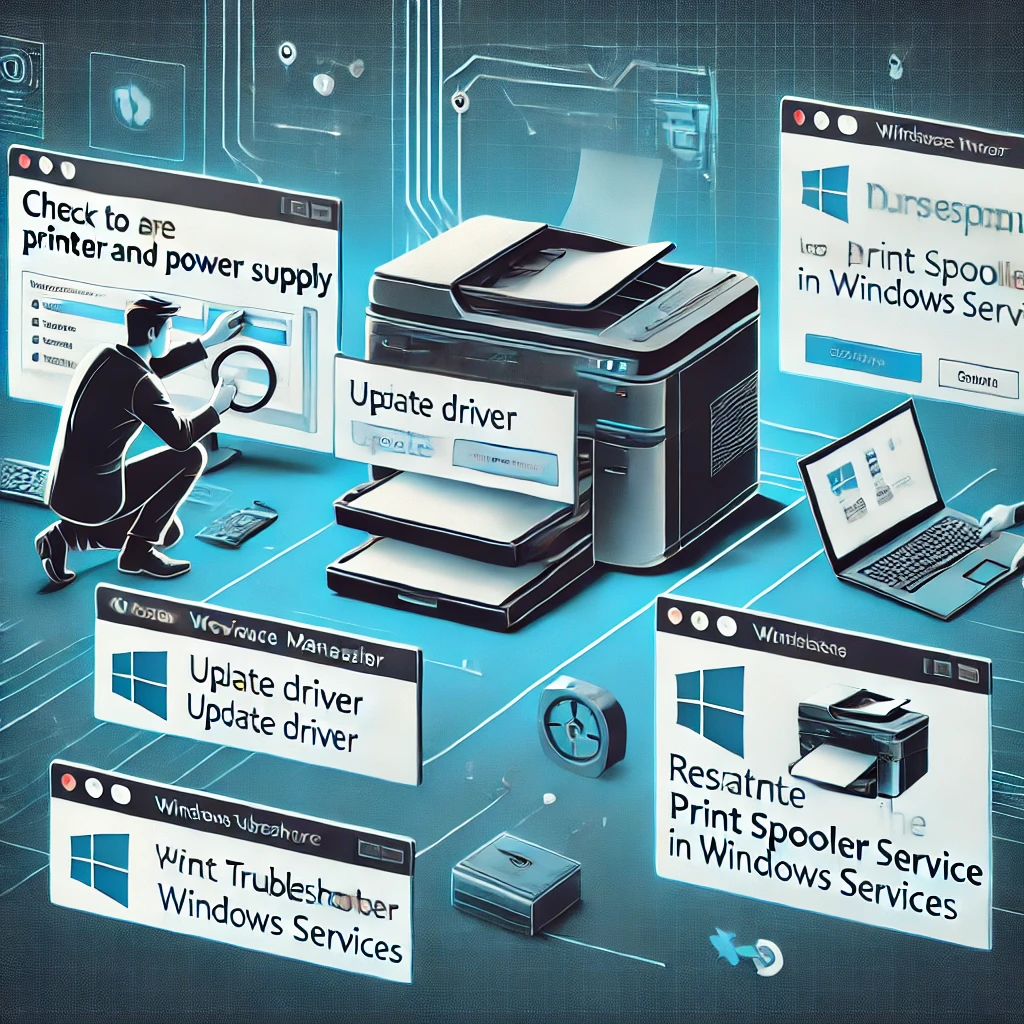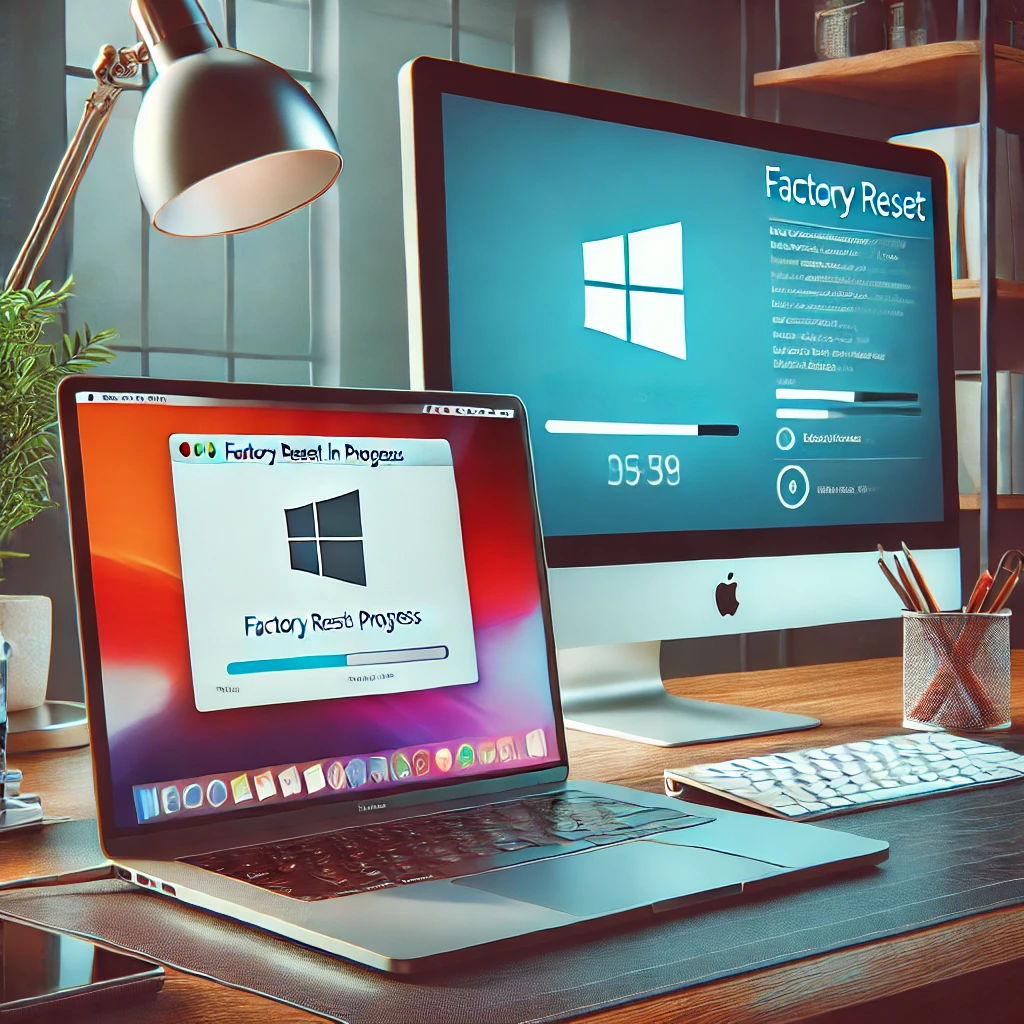Software crashes and freezing issues are frustrating, especially when you’re in the middle of important work or gaming. Whether you’re facing random app crashes, unresponsive programs, or complete system freezes, this guide will help you identify the causes and fix the problem step-by-step.
Let’s dive in! 🚀
🔍 Why Do Software Crashes & Freezing Issues Occur?
Several reasons can cause software to freeze, crash, or stop responding. The most common ones include:
1️⃣ Insufficient System Resources
If your RAM, CPU, or storage is overloaded, software may struggle to function properly, causing crashes.
2️⃣ Software Bugs & Compatibility Issues
Some applications contain bugs or may not be fully compatible with your operating system, drivers, or other software.
3️⃣ Corrupt System Files & Software Data
Damaged or missing system files can cause programs to malfunction and lead to frequent crashes.
4️⃣ Outdated Drivers
If your graphics, audio, or chipset drivers are outdated or incompatible, they can cause application failures.
5️⃣ Malware or Virus Attacks
Malware can interfere with system functions, corrupt files, and crash applications unexpectedly.
6️⃣ Overheating Issues
If your PC or laptop is overheating, it may force applications to shut down to prevent hardware damage.
7️⃣ Faulty or Corrupt Windows Updates
Sometimes, a recent Windows update might be incompatible with certain apps, causing freezing or crashes.
🛠 How to Fix Software Crashes & Freezing Issues
Now, let’s go through step-by-step fixes to resolve this problem.
1️⃣ Restart Your Computer
🔹 The simplest fix is to restart your PC. This clears temporary files, refreshes system memory, and resolves minor software glitches.
2️⃣ Close Unnecessary Background Applications
Too many apps running at once can overload system resources, leading to freezing or crashing.
Steps to close background programs:
- Press Ctrl + Shift + Esc to open Task Manager
- Click on the Processes tab
- Select programs consuming high CPU or RAM
- Click End Task to close them
🔹 Pro Tip: Disable unnecessary startup apps for better performance.
3️⃣ Check & Free Up System Resources
If your system doesn’t have enough free RAM or disk space, apps may crash or freeze.
How to check system usage:
- Open Task Manager (Ctrl + Shift + Esc)
- Click on Performance Tab
- Check CPU, Memory, and Disk Usage
Fix:
✅ Close unnecessary apps & tabs
✅ Upgrade RAM if your PC has less than 8GB
✅ Free up disk space (Delete unnecessary files, clear cache, and temp files)
4️⃣ Update the Crashing Software
An outdated app may have bugs or compatibility issues. Updating the software can fix this.
Steps to update software:
- Open the crashing app
- Go to Help > Check for Updates
- Install the latest version
🔹 If the app crashes before opening, download the latest version from the official website.
5️⃣ Run the Software in Compatibility Mode
Older apps may not work well on newer Windows versions. Running them in compatibility mode can help.
How to enable compatibility mode:
- Right-click on the app shortcut
- Select Properties
- Go to the Compatibility tab
- Check Run this program in compatibility mode
- Select an older version of Windows
6️⃣ Update Windows & Drivers
Outdated Windows OS or drivers can cause freezing and crashes.
How to Update Windows
- Open Settings (Win + I)
- Go to Update & Security
- Click Check for Updates
- Install available updates
How to Update Drivers
- Press Win + X, select Device Manager
- Expand the device category (e.g., Display Adapters for graphics drivers)
- Right-click your device and choose Update Driver
- Select Search automatically for updated driver software
✅ Update graphics drivers manually from official sites:
🔹 NVIDIA: www.nvidia.com/download
🔹 AMD: www.amd.com/en/support
🔹 Intel: www.intel.com/content/www/us/en/download-center.html
7️⃣ Check for Corrupt System Files
Windows system files can become corrupt, leading to app crashes. Running the System File Checker (SFC) tool can fix this.
Steps to Run SFC Scan:
- Open Command Prompt as Admin (Win + R → Type “cmd” → Press Ctrl + Shift + Enter)
- Type: shCopyEdit
sfc /scannow - Press Enter and wait for the scan to complete
- Restart your PC after the scan
8️⃣ Scan for Malware & Viruses
A virus or malware infection can crash programs, slow down your PC, or freeze the system.
How to Scan for Malware:
- Open Windows Security (Win + I → Update & Security → Windows Security)
- Click Virus & Threat Protection
- Select Quick Scan or Full Scan
- Remove any detected threats
🔹 Use third-party antivirus software like Malwarebytes or Kaspersky for better security.
9️⃣ Adjust Virtual Memory (Page File)
If your PC doesn’t have enough RAM, increasing virtual memory can prevent freezing.
Steps to Increase Virtual Memory:
- Open Control Panel > System > Advanced System Settings
- Go to the Advanced tab and click Settings under Performance
- Click the Advanced tab again and select Change under Virtual Memory
- Uncheck Automatically manage paging file size for all drives
- Select Custom size, and set:
- Initial Size: 1.5x your RAM
- Maximum Size: 3x your RAM
- Click OK, restart your PC
🔟 Reinstall the Crashing Software
If nothing works, uninstalling and reinstalling the problematic app can fix it.
Steps to Reinstall:
- Press Win + X, select Apps & Features
- Find the crashing app and click Uninstall
- Download and install the latest version from the official website
🚀 Final Thoughts – Prevent Future Software Crashes
To avoid future software crashes and freezing issues:
✅ Keep your software & drivers updated
✅ Regularly scan for malware & viruses
✅ Clean up system junk & free up RAM
✅ Avoid running too many heavy apps at once
✅ Ensure proper cooling to prevent overheating
🔹 Still facing issues? Drop a comment below! 🚀🔥
🚀 You May Like :
🔗 How to Solve Unresponsive Programs issues of Computer
🔗 How to Solve Blue Screen of Death (BSOD) issue of computer
🔗 How to Fix Internet Connection Issues on Any Device
![]()





3 thoughts on “How to Fix Software Crashes & Freezing Issues”